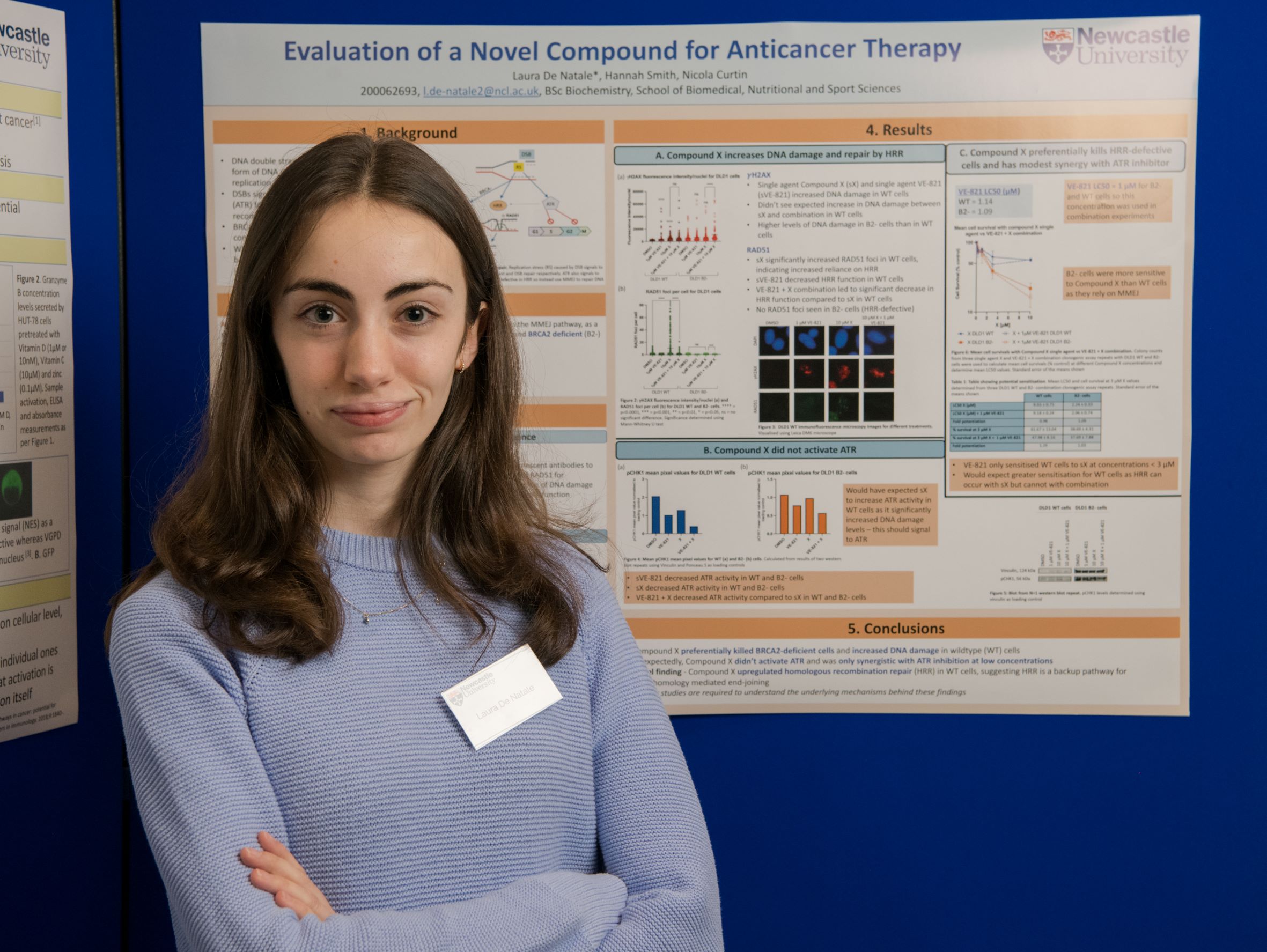2022 Participants
 Laura De Natale
Laura De Natale
DNA double-strand breaks are a highly cytotoxic form of DNA damage. They signal via Ataxia-telangiectasia and Rad3-related (ATR) for cell cycle arrest and primarily via homologous recombination repair (HRR) for repair. BRCA1/BRCA2 are key components of HRR that are commonly mutated in cancer. When HRR is defective, e.g. in BRCA-deficient cells, a back-up pathway called microhomology-mediated end joining (MMEJ) is used.
Compound X, an MMEJ inhibitor, was used to probe our hypothesis that MMEJ inhibition (i) causes DNA damage accumulation which activates ATR, (ii) preferentially kills cells lacking HRR, and (iii) is synergistic with ATR inhibitors to kill cells. DNA damage was measured by immunofluorescence assays, ATR activation by western blotting, and cell killing by colony formation assays.
Compound X increased DNA damage but did not activate ATR, preferentially killed BRCA2-deficient cells, and was only synergistic with ATR inhibition at low concentrations. Further studies are needed to understand the underlying mechanisms.
Funding source: Newcastle University
Project supervisor: Professor Nicola Curtin
